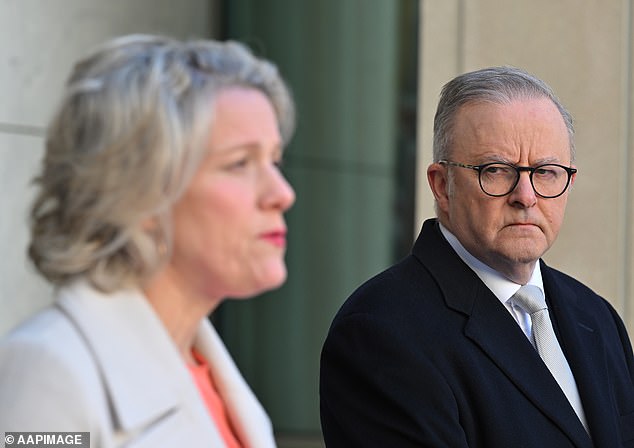Brisbane dad explains huge problem facing next generation of tradies
A concerned father has revealed his son doesn’t see a future anywhere in Australia due to the country’s housing crisis.
The Brisbane father explained his son’s dire situation in a post he shared on a Facebook group that aims to help young Australian men understand their finances.
He said his son, who is over 21 and works full-time as a second-year student, wants to leave home.
However, weekly rents in the region amount to nearly 90 percent of his son’s salary.
“I am genuinely concerned about the future of this country,” the father wrote.
‘The most basic three-bedroom rental in the neighborhood costs more than 90 percent of his salary. Townhouses are no better.
‘If I hadn’t gotten a mortgage 20 years ago, I would never have been able to live in the house where they grew up.
“I have never earned enough in my life to qualify for the loan I need to buy my own home at today’s prices, even if I were given the full original purchase price as a gift for the necessary down payment.”
The concerned father explained that his son cannot afford to move out of the house as the weekly rent amounts to almost 90 per cent of his wages (stock photo of a home in Brisbane’s inner city Milton neighbourhood)
He added that his son deposits money into his savings account every week and has also invested in stocks.
Despite his savings, the father said “housing is simply unaffordable” for his son, even in the suburbs of Brisbane.
Due to the rising cost of living and the growing housing crisis in the country, the father said his son plans to move abroad once he completes his apprenticeship.
“He sees no future anywhere in Australia,” the father wrote.
‘Other than having to wait until his grandparents die (probably another 20 years) I can’t imagine he’ll ever have any other way to get out of his parents’ house.’
Many agreed with the father, arguing that the Australian housing market is no longer viable for young Australians.
“Thirty years ago it was not uncommon for the parents of schoolmates to have a holiday home, even though the mother did not work,” one person wrote.
“Pretty sad huh? 10 years ago $100,000/year was a pretty decent amount. Now $200,000/year is barely decent,” a second person added.
“It is what it is. Adapt and overcome. A new wave of life is in Australia,” a third commented.
Someone else argued that Australia was once the land of ‘fair opportunity’, but that young Australians now rely on wealth passed down through generations to get ahead.
“He’ll get a house when you die, or you’ll buy it for him,” they wrote.
‘Intergenerational wealth is sadly key in Australia. The land of the “fair go” disappeared many years ago and any life it had left has been kicked out during and after COVID.’

The father said he was “genuinely concerned about the future of the country” as the housing market prices young Australians out of the market, leading some – including his son – to consider moving overseas. Pictured: Stock photo of young Australians at a music festival

Economist Leith van Onselen said politicians are terrified of introducing measures that would push down prices for fear of losing votes. Pictured: Prime Minister Anthony Albanese
Australian house prices soared during the pandemic in 2021 after the Reserve Bank cut interest rates to a record low of 0.1 percent.
Meanwhile, prices in Brisbane, Adelaide and Perth have still risen by double digits over the past year, despite the Reserve Bank raising interest rates 13 times in 2022 and 2023 to a 12-year high of 4.35 percent.
This was due to increasing demand as a result of record high immigration figures.
Last year, net overseas immigration reached record levels of almost 550,000, mainly to Sydney and Melbourne, driving homebuyers to the more affordable cities.
Someone with an average income of $100,017 can buy a typical Australian home, but they cannot afford a home worth $802,357 at the median price.
This is because this individual buyer would have a debt-to-income ratio of 8, which is above the existing bank lending threshold of 5.2 based on the current RBA cash rate.
The situation is even more dire in capital cities, where the average house price is now $997,352.
Earlier this week, economist Leith van Onselen warned that government incentives to make homes more affordable for first-time buyers, such as subsidies and transfer tax reductions, are actually having the opposite effect. They are only ensuring that more buyers enter the housing market and that prices are only rising further.
Most MPs are homeowners and are benefiting personally from rising prices. According to Mr Van Onselen, even those who are not looking for personal gain are afraid to introduce measures that would lower prices, for fear of losing votes.
“Too many politicians are sitting on their hands and know that falling house prices are electoral poison,” he said.
